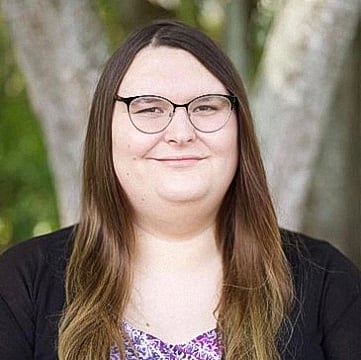
There's a special allure that comes from taking a trip to a place you've never been before. It's thrilling to escape your comfort bubble and travel to a new destination. Even if that destination is only a few cities over, or it's across the country, travel can expand one's paradigm and give opportunities that you hadn't had before.
My first trips with a choir were in high school. In San Antonio, I got to tour the Alamo and find a haunted house particularly not terrifying. In Branson, Missouri, I got to meet George Harrison's sister, and my choir sang with the Liverpool Legends, the best Beatles cover band in the United States. My senior year, we traveled to Disney World for Festival Disney, where my choir won quite a few "Golden Mickeys," the highest honor one can receive in said Disney competition.
Some of my fondest memories of high school come from these trips. Over a decade later, I still talk about minute bits of nostalgia when I reconnect with high school choir friends. The power of a good trip with your ensemble is undeniable. However, when I got to college as a choral music education student and began to identify as transgender publicly, choir trips became something to be anxious about rather than excited for.
In the beginning stages of my transition, I wasn't super confident about showing the world that I was a woman, but I also became incredibly depressed when lumped in with the men. In my freshman and sophomore years, I presented as a man simply because I was so unconfident and scared of what people might say or think.
So when it came time for the annual choir tour to perform/recruit in parts of Texas and Louisiana, I resigned myself to rooming with men and not rocking the boat. I figured that this decision was the best one because instead of making others uncomfortable, only I had to deal with the discomfort. I didn't want to be a burden. I was able to find a room with three guy friends who knew of my trans identity but accepted me and didn't harbor any kind of bigotry towards me. I was fortunate enough to feel safe in a room with them.
My junior year rolled around, and by this point, I was living as female full-time. I stopped apologizing for who I was, rocked a choir dress in concerts, and told myself I deserved to be happy too. The new choir director that year acquiesced to this, probably in an attempt to not rock his own boat. But when it came time for the annual choir tour, he began to worry about how my identity would affect recruitment and public perception, although one of the schools we were traveling to was my own high school, my alma mater. I'll never forget our meeting that day, the day when he asked to speak with me in his office after a rehearsal.
It wasn't an entirely long conversation, but his words have been seared into my memory ever since: "When we go on tour, I want you to kind of stay quiet and fade into the background because some people are going to find you disgusting." Disgusting.
The choice of words wasn't a mistake, and it clearly was rooted in his own transphobia and internal biases. Instantly, the choral room that had been my home for three years, where I had developed a more profound love for choral music, became inhospitable. Later on, when I told my voice professor what he had said, she quite loudly exclaimed, "He said WHAT?!?" It helped me know that I wasn't alone in finding his views repugnant.
When it came time to sign up for choir the next semester, I realized I had no particular desire to be under his baton again. So after being in choir non-stop from my 5th grade years through my junior year of college, my senior year was the first time in my schooling that I went without singing in an ensemble. All because of how one director made me feel before a trip.
The most ironic part of all this was that the trip was an overt success. I wore my choir dress, sang and changed with the rest of the girls, roomed with the guys, and at the end of the concert, a group of high schoolers in the audience approached me and asked if I had been singing bass. When I told them I had, they got so excited to see a woman singing bass. They asked how I got my voice so low, and since I didn't want to out myself, my characteristic snark shone through. I patted my throat and said, "Oh, uh....lots of practice." To any fellow Texan high school directors reading this, if I accidentally inspired your treble singers to spend hours in the practice room trying to become basses.....my bad.

So let's talk a little bit about how to plan to ensure you have a successful trip with your choral group that has terrific memories attached without some of the negative interactions for transgender, non-binary, and gender-expansive members that I encountered.
1. Start with the age group of your ensemble.If you are primarily working with minors, you will come across a lot more red tape than if you are strictly working with adults. This red tape can come in the form of local legislation, parental approval, and for those in the educational world, student information/privacy concerns. While I am going to assume you are working with adults, if you are working with minors, take some of these previously mentioned concerns into account.
2. Have a set plan for rooming and paying for rooms.
Are you going to have every choir member room by themselves? Will they group up to lower costs? Will they pay the hotel directly, or will they pay the choir as the organizing entity, who will, in turn, pay the hotel? If choir members are grouping up, and the choir is paying the cost, will it be assigned rooms based on gender? If you have a trans individual or individuals in your ensemble, do they have people of the same identifying gender they can room with? These are all questions to take into account as you plan your trip.
3. Have options ready to go.If your trans member feels uncomfortable rooming with other people, and members aren't individually paying for their own individual rooms, I recommend letting the trans member have their own room and have the choir offset the cost that ordinarily would be split. This will allow them to feel more comfortable and safe in their room, without any adverse effects. If your trans member does feel comfortable rooming with others, and has a particular roommate that they would feel comfortable rooming with, grant their request first, provided both parties agree.
4. Plan stops in safe areas with gender-neutral bathrooms.Take the extra time to make sure any pit stops or dining locations in the itinerary or along the way have gender-neutral or family bathrooms. This will ensure your choir member has somewhere safe to use the restroom. You might not be able to find 100% success with this based on the area you are traveling through, but making an effort and doing some leg work will go a long way for your choir member.
5. Ensure that performance locations have gender-neutral dressing rooms.When it is time to change into concert attire, some members aren't going to feel comfortable changing with the men or the women. Try to plan to have three different changing areas instead of two. You may not need the extra space, but it is always better to be over-prepared than under-prepared.
6. Check in with your choir members to see what makes them comfortable.There is absolutely nothing wrong with checking with your transgender, non-binary, or gender expansive choir members to see if there is a way to make their traveling experience more comfortable. Just be kind and friendly as you chat with them.
Try something along the lines of, "Hey, as I'm planning the choir trip, I want to make sure that I do not forget anything. Do you have any things that you could think of for me to consider so that you have a great trip?" If they can't think of anything, that's fine! But if they do have ideas, make sure that you really listen to them and adapt your plans accordingly.
A choir trip can be enjoyable, memorable, and impactful for both choir and audience members with proper planning and forethought. Keep the aforementioned ideas in mind as you plan your next adventure so that your ensemble can have fun getting back on the road again. If you have any experiences or thoughts you’d like to share, please feel free to comment down below!

Melanie Stapleton (she/her) is a music educator, researcher, author, and choral director located in Chicago. She is currently a PhD student at Northwestern University in Evanston, Illinois, pursuing a PhD in Music Studies with a specialization in Music Education and an interdisciplinary certificate in Gender and Sexuality Studies. She is the founder of Blurring the Binary, and holds a Masters of Music Education from the University of North Texas as well as a Bachelors of Music Education from Louisiana State University. She is a strong believer that the choral ensemble should be a musical family and a safe place offering unconditional love for all. When not teaching, she can be found hanging with her Golden Retriever, Queso, playing video games, or jamming to the latest choral hits.

